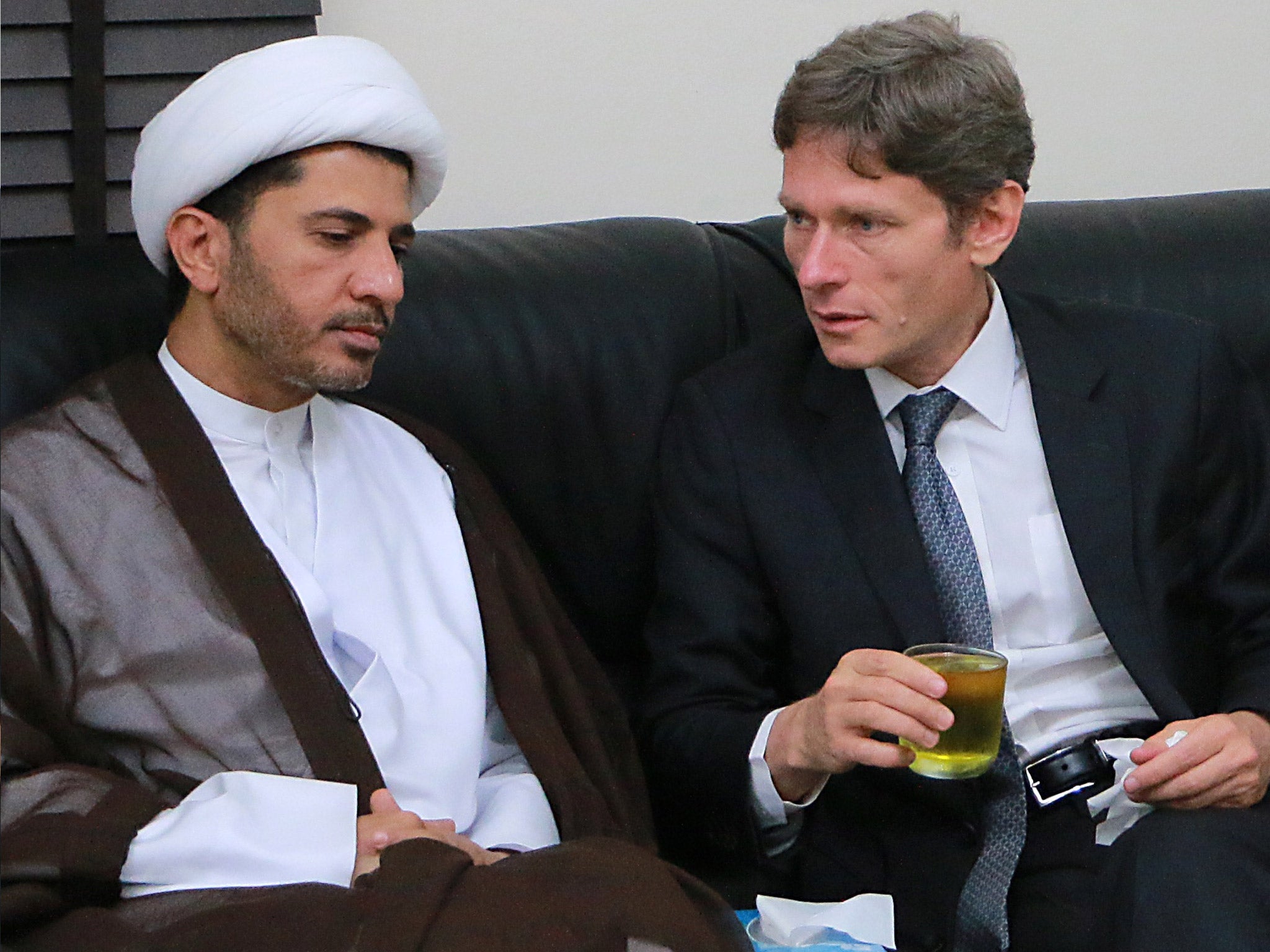Bahrain moves to expel 'unwelcome' US official for meeting Shia opposition group
Tom Malinowski met with leaders of the al-Wifaq party, who claim the order shows that those opposed to reform and reconciliation within the ruling al-Khalifa family are prevailing

Your support helps us to tell the story
From reproductive rights to climate change to Big Tech, The Independent is on the ground when the story is developing. Whether it's investigating the financials of Elon Musk's pro-Trump PAC or producing our latest documentary, 'The A Word', which shines a light on the American women fighting for reproductive rights, we know how important it is to parse out the facts from the messaging.
At such a critical moment in US history, we need reporters on the ground. Your donation allows us to keep sending journalists to speak to both sides of the story.
The Independent is trusted by Americans across the entire political spectrum. And unlike many other quality news outlets, we choose not to lock Americans out of our reporting and analysis with paywalls. We believe quality journalism should be available to everyone, paid for by those who can afford it.
Your support makes all the difference.Bahrain has ordered a top US diplomat visiting the island to leave the country after he met leaders of the main Shia opposition party. The government said that the US assistant secretary for human rights, Tom Malinowski, was “unwelcome” and he should end his official three-day visit to Bahrain “due to his interference in its internal affairs”.
Sheikh Ali Salman and Khalil al-Marzouq, the leaders of the al-Wifaq opposition party, were summoned to meet the public prosecutor for interrogation today about what they discussed with Mr Malinowski. The US State Department said that at the last minute the Bahraini authorities had demanded that a member of its foreign ministry attend all private “meetings with individuals and groups representing a broad spectrum of Bahraini society, including those held at the US embassy”.
A State Department spokeswoman, Jen Psaki, sounded surprised at the turn of events, saying the Bahrain government was “well aware that US government officials routinely meet all officially recognised political societies.”
By deliberately provoking a diplomatic incident out of an unexceptional prearranged visit by a senior US diplomat, the ruling al-Khalifa royal family is giving the impression that it continues to be split over how to respond to the democratic protests by the Shia majority that started in 2011. The demonstrations were brutally crushed, with many arrests and widespread torture of any critics of the government, but repression has failed to stop rallies and protests in Shia districts of Bahrain.
The US and Britain have been embarrassed by charges of hypocrisy stemming from their mild reaction to the suppression of all dissent by the Sunni monarchy in Bahrain compared to their forthright condemnation of President Bashar al-Assad for human rights abuses.
Bahrain has been seeking through a public-relations exercise to persuade the rest of the world that life on the island has returned to normal. In May, Prince Andrew was to be the keynote speaker at a London conference celebrating Bahrain as a place of religious freedom and tolerance of divergent opinions, but he pulled out after criticism of his support for the Bahraini government. During a visit to the island earlier in the year, he said: “I believe that what’s happening in Bahrain is a source of hope for many people in the world and a source of pride for Bahrainis.”
As the confrontation between Sunni and Shia gets increasingly bitter and more violent across the Islamic world after the military success of virulently anti-Shia Isis in Iraq and Syria, Bahrain is likely to be affected. Ali al-Aswad, a former MP and spokesman for al-Wifaq, said the order for Mr Malinowski to leave showed that those opposed to reform and reconciliation within the al-Khalifa family were prevailing.
Bahrain has pursued a policy of presenting itself as open to political reform but at the same time suppressing media reporting. While downplaying protests in Shia villages as insignificant, it has jailed or brought criminal charges against four photographers. Others have been sacked by their newspapers, allegedly on government orders.
Hussain Hubail, who won an award for his pictures of anti-government protests, was sentenced to five years in jail after he was arrested while boarding a flight to Dubai. His mother told Human Rights Watch that he had told her he was blindfolded and handcuffed after his arrest and exposed to cold temperatures for long periods until he signed a confession. The security forces’ campaign against photographers appears to be aimed at suppressing pictures of continuing anti-government demonstrations.
Join our commenting forum
Join thought-provoking conversations, follow other Independent readers and see their replies
Comments